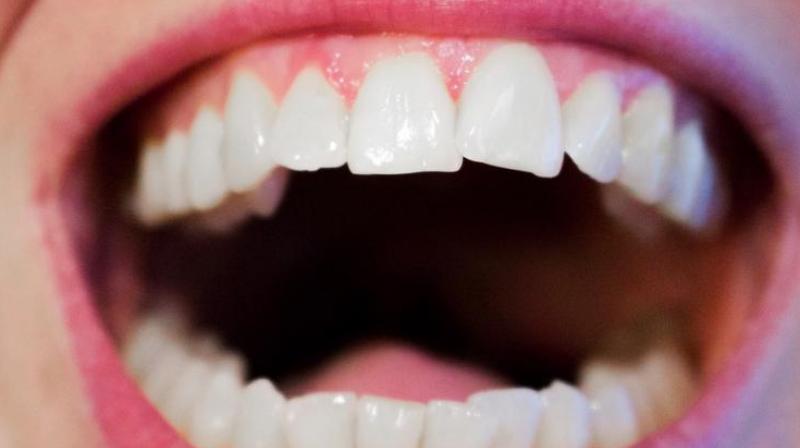Understanding oral cancer
Constant teeth irritation is a little-known factor that causes oral cancers.

While smoking and consumption of alcohol are established facts for incidence of oral cancers, new research shows that chronic dental irritation can also cause the disease. Chronic dental irritation means sharp teeth hitting the tongue constantly, damaged or poorly formed teeth and poorly fitted dentures. Constant teeth irritation is a potential carcinogen and is another reason for oral cancers. Dr Vishal Rao, head and neck surgical oncologist and robotic surgeon, explains in detail the oral cancers caused by sharp teeth.
How many oral cancer cases are due to tobacco? What are the other reasons for oral cancer?
India sees around one lakh new cases of oral cancer each year. More than 90 per cent of these are attributed to tobacco use. And 10 per cent of the cases are non-tobacco related. Other causes related to oral cancer are consumption of alcohol, betel nut (supari/pan masala) and the most recently known case is sharp teeth, a problem in patients with no habits.
Why is chronic mucosal trauma a cause?
Mucosal trauma in oral cavity may be due to ill-fitting dentures, broken teeth, sharp teeth, overhanging restoration but rarely due to implants. These factors in the long run have shown to cause either direct or indirect DNA damage mediated by inflammation leading to cancer of mouth. Dental treatments as such do not cause cancer, rather lack of the right intervention and ignoring dental issues may predispose a person to chronic traumas. Factors like aging also contribute to cumulative DNA damage as our immune systems get weaker as we grow older.
What is the definition of sharp teeth? Where are they located in the mouth region and how do they affect the oral cavity?
Broadly speaking, broken teeth, decayed teeth, filled teeth and ill-fitted dentures predisposing a person to chronic mucosal trauma come under the bracket of sharp teeth. These are associated with tongue cancers, jaw or inner cheek and related cancers. Experimental animal studies have suggested that chronic trauma may result in cancer formation by two mechanisms. It has been proposed that persistent mechanical irritation causes DNA damage and may eventually result in cancer formation. According to second proposed mechanism, chronic mucosal trauma results in inflammation, thereby releasing chemical mediators such as cytokine, prostaglandins, and tumor necrosis factor. Such an inflammation leads to oxidative stress. This could induce genetic and epigenetic changes damaging DNA. In a nutshell, inflammation may act at different steps and result in cancer formation.
Do remnants of food or soft drinks that stay inside the corners of the mouth for long become cancerous?
Generally it is not the food, but dental hygiene like not brushing regularly that contributes to poor oral hygiene. Oral hygiene has been shown to be an independent risk factor for oral cancer in several studies. Thus it is important to maintain dental hygiene with regular rinsing and brushing. Again, the mechanism is similar to what we have explained earlier inflammation being the key mediator that predisposes one to cancer. Scientists and doctors are also exploring the contribution of oral microbiome (microorganisms in oral cavity) in cancer. There are advance genetic methods being used to study these factors.
What are the precautions that a patient must take in case of chronic mucosal insult? Can a common man understand the symptoms?
The risk factors that must not be ignored are:
1) Ill-fitted dentures
2) Broken teeth
3) Sharp teeth
4) Discomfort or constant irritation in the oral cavity
5) Pain or ulcers that are not healing despite medication.
In oral cancer treatments, it is often found that the teeth are removed, the jawline is cut and also the face gets badly disfigured while removing the tumour. In doing so, the patient undergoes major psychological trauma. Are there better ways to deal with oral tumours?
Robotic surgeries have been able to overcome this impediment and avoid scars completely. But in places where there is no robotic surgery, these problems still do exist. Those patients require psychological counseling and aggressive rehabilitation services with speech and swallow therapists.

